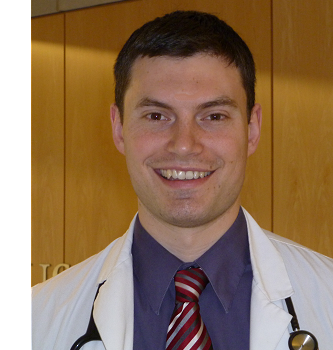|
|
Third-year medical student Noah Rosenberg won one of six Young Physicians Patient Safety Awards from the Doctors Company Foundation, in partnership with the Lucian Leape Institute at the National Patient Safety Foundation (NPSF). The prestigious award recognizes young doctors for “their deep, personal insight into the significance of patient safety work.” Awards are given based on essays submitted by candidates, and each winner receives $5,000 as well as registration and travel expenses to the NPSF 2011 Annual Congress, held at the end of May in Washington, DC.
“Noah’s achievement in patient safety is a great demonstration of the values and priorities that UMass Medical School as a whole holds dear,” said Terence R. Flotte, MD, executive deputy chancellor, provost and dean of the School of Medicine
Rosenberg, of Shutesbury, who received an undergraduate degree in molecular biology with a minor in English from Pomona College in Los Angeles, said he was surprised toreceive the award and is excited to go to the Annual Congress. “I’m honored to represent UMass and the values the institution imparts to its students through courses like the patient safety interclerkship.”
His award-winning essay was centered on a case in which a surgeon inadvertently removed a patient’s kidney while performing another surgery. The kidney, located much lower in the abdomen than usual, appeared to the surgeon and others as a suspicious and possibly cancerous mass. Instead of waiting for the pathology report on the biopsy they’d taken—the “pressure to do something began to mount; the operating room was needed for another surgery, while the surgeon and resident were needed for other cases,” Rosenberg wrote—the surgical staff decided to remove the mass, only later discovering it was the patient’s kidney.
More poignantly, the surgeon, Rosenberg’s mentor, had previously counseled Rosenberg to take care with his patients, saying that, “Lots of people call doctors ‘heroes,’ but patients are the real heroes because they undergo anesthesia, they let someone open them up—they take the risk.” Spurred by this case, Rosenberg conducted his own research and found it instructive to review wrong site/wrong surgery cases, using the Joint Commission on Hospital Accreditation criteria and noting several factors that typically are present in cases where errors occur. Notably, he found that unplanned procedures—such as this one, where the “mass” was discovered during another procedure—and time pressures—such as those faced in this case—can increase risk. Significantly, poor communication, and not waiting for pathology results, can have disastrous results.
Rosenberg wrote a report on his findings and presented it to the hospital administration and will undertake a quality improvement project he said was inspired by this patient. He notes in his essay that, “Patients are heroes because they take these risks and, more often than not, are simply grateful to be healed. The event that changed this patient’s life activated me to work so that heroism will never be taken for granted.”
While he relished his surgery rotation because he enjoys working with his hands—“the immediacy of ‘fixing’ someone and improving the patient’s health” resonated with him—Rosenberg said he plans to pursue family medicine for the opportunity to more broadly affect his patients’ health and well being over time. Taking it a step further, he also plans to attend business school with an eye toward effecting change on a larger scale and playing a part in health care policy, particularly as it relates to patient safety. After residency, he plans to pursue a master’s of business administration or, possibly, a master’s of health care administration, and has a keen interest in the economics of health care, particularly in this era of health reform.
Rosenberg is a member of the American Medical Association’s Medical Student Section Committee on Economics in Medicine, through which he gets to “connect with like-minded students” and develop modules for medical students to better grasp the impact of economic factors on health care and medical practices. He is currently finishing the “Top 10 Things Practicing Physicians Wish They Knew About Business,” a module to be offered through the AMA-MSS.
|
Earlier this year, Noah Rosenberg also won the UMMS Gerald F Berlin competition for his poetry. This is his winning poem: |
Related links:
Creative writing winners to be honored
